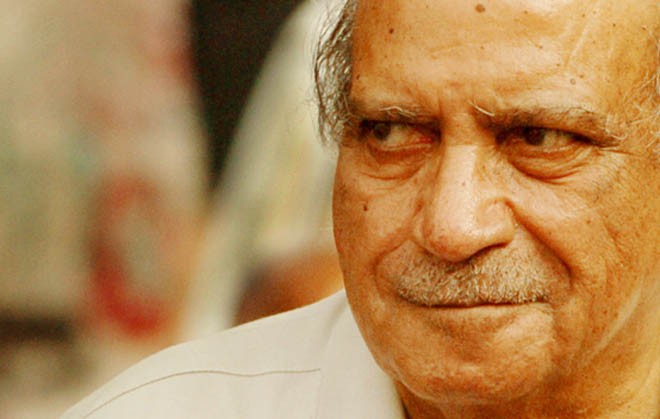
-- Interview with I.A. Rehman, senior journalist and human rights activist

The News on Sunday: Do you see the current wave of targeting of NGOs in line with a policy of the state to curb freedoms and dissent in general or are the NGOs being specially targeted?
I.A. Rehman: It seems the government is obsessed with threats to national security and has taken quite a few steps ostensibly to guarantee security. These include tightening of anti-terrorism law, promulgation of a tough cyber crime law, invigoration of PEMRA to control the electronic media, and stricter regulation of civil society organisations. Thus the pressure on NGOs can be taken as part of an overall effort to check dissent and control people’s thought processes.
However, it may be noted that all NGOs are not under attack. The government does not seem to have any problem with organisations that do charitable work or reduce the burden of the state by taking over their schools or welfare facilities. But it has problems with international NGOs operated by foreign organisations and national NGOs that receive foreign funding. Attempts have been made for quite some time to increase government’s supervision/control over such organisations. The government also has a problem with CSOs (civil society organisations) that agitate for rights. It has become extra-sensitive to any comments on actions or policies affecting women, children, minorities and it takes a serious view of NGOs’ preparing reports on the state’s compliance with international treaties.
Read also: Granting objection certificates
TNS: As of now, the targeted NGOs seem to be getting relief from the courts. What else do you think the civil society need to do apart from these short term measures?
IAR: The CSOs have been forced to seek relief from the courts but I don’t think they can be comfortable while working under judicial injunctions.
This could widen the gulf between the government and the CSOs. A negotiated settlement between them should be a better way out. The CSOs can be persuaded to accommodate the government’s legitimate concerns but the government will have to desist from encroaching upon the CSOs’ and citizens’ right to freedom of expression and association.
TNS: In the recent incidents that have come to the fore, there is a special focus on South Punjab. Are there any geographical areas the state seems to focus on, when it comes to curbing freedoms? Broadly, do the NGOs feel restricted intellectually and geographically about some no-go areas?
IAR: The security agencies perhaps consider Southern Punjab a breeding ground for militants and terrorists. But the government has been wrongly advised to stop CSOs from exercising basic rights. It is quite ironical that while madrassas and quasi-religious associations are free to turn out militants, the CSOs are not allowed to discuss violence against women or even ways of combating extremism.
The NGOs are enjoying relative freedom in big cities and provincial capitals but there too they are having problems with renewal of registration and access to information.
TNS: Within the sector, would you agree that is it the advocacy rather than the developmentalist NGOs that are at a greater risk?
IAR: Quite right, advocacy NGOs are at greater risk than development-oriented NGOs.
TNS: What do you make of the charges of anti-state and anti-national being thrown at the civil society and not against elements that appear a real threat to the state?
IAR: One can only regret the government’s flawed approach towards CSOs. I think that government is competing with those who are challenging the state instead of confronting them. And it is becoming hostile to CSOs that are helping it by pointing out areas that need attention and reform. What is anti-state and anti-national should be objectively determined. Governments everywhere tend to define state and national interests subjectively and that creates problems.
If any organisation is guilty of anti-state activity, it may be prosecuted under the law. Using executive authority and instruments of harassment to suppress legitimate criticism or dissent is not permissible in a democratic state. In the absence of any supporting evidence, the charges of anti-state and anti-national activities are untenable.
TNS: What does Pakistan lose in the face of these constraints against INGOs and NGOs? Also what kind of self-accountability does the NGO sector need to avert such threats?
IAR: Pakistan loses a great deal by restricting the work of INGOs and CSOs. The INGOs have done much to promote democratic norms, rule of law and public welfare activities. The same can be said about the CSOs. The most important point is that by suppressing the CSOs, the government will lose the benefit of an alternative opinion. Democracy is not possible without a vibrant opposition: Pakistan cannot meet the challenges it is facing without help from the civil society.
The NGO sector also needs to avoid compromising its position by irresponsible behaviour. It must develop and maintain its accountability mechanisms and avoid, as far as possible, turning disagreement into confrontation.
It should take the state at what it is and not what it should be. The state needs help to be able to better discharge its democratic responsibilities.